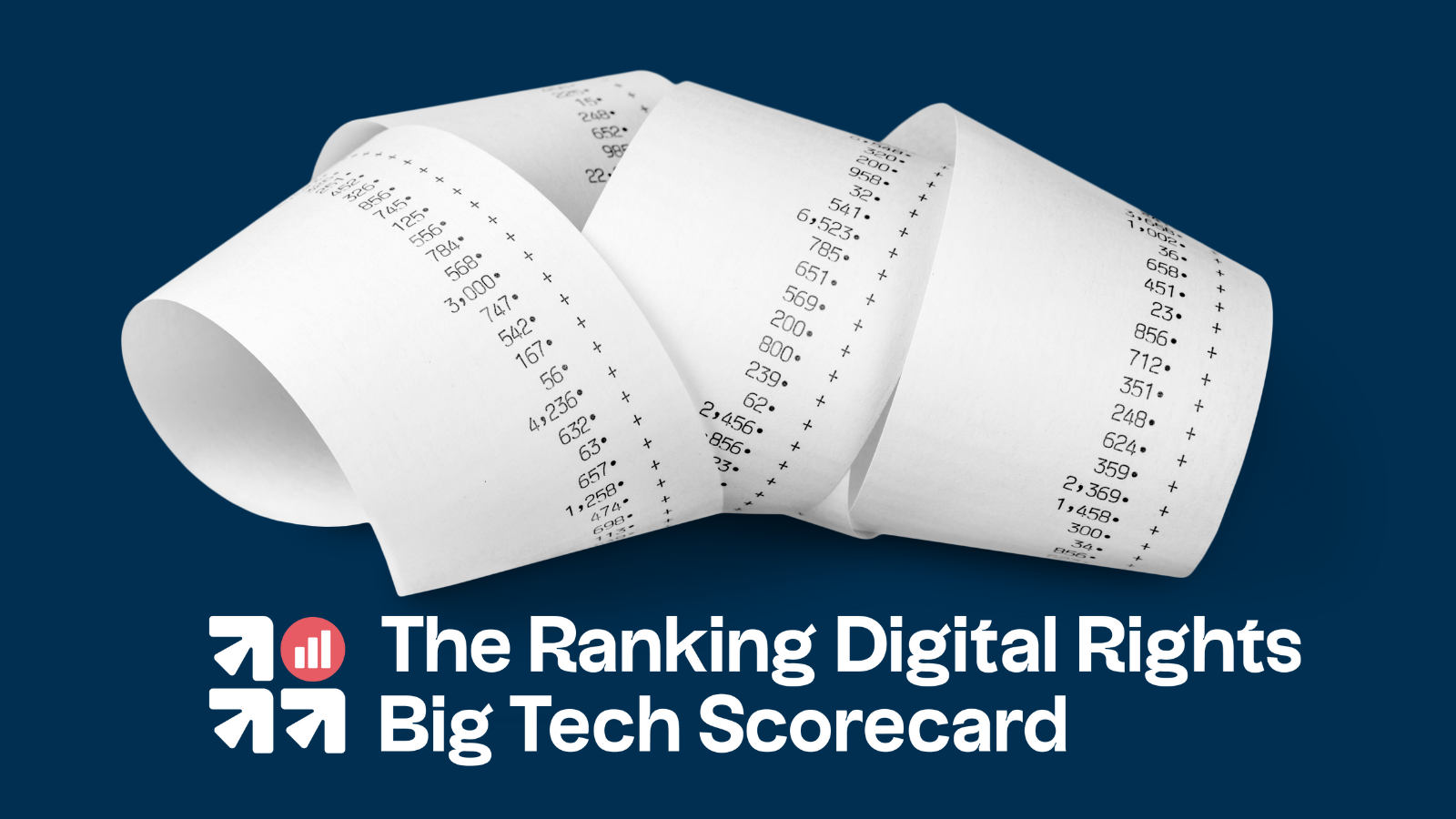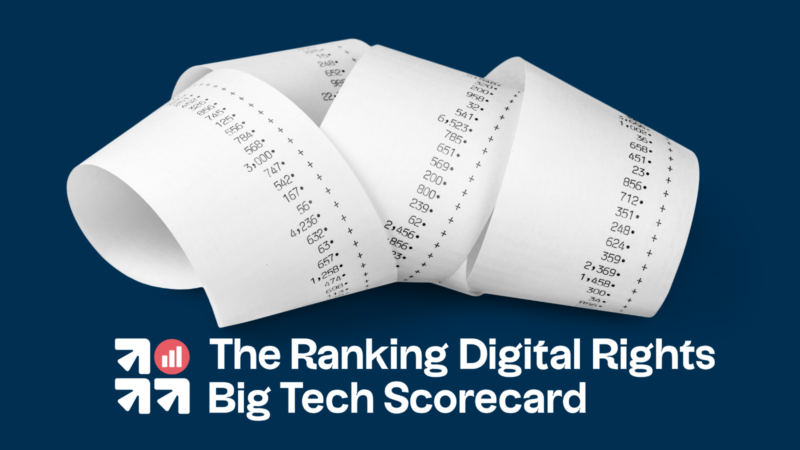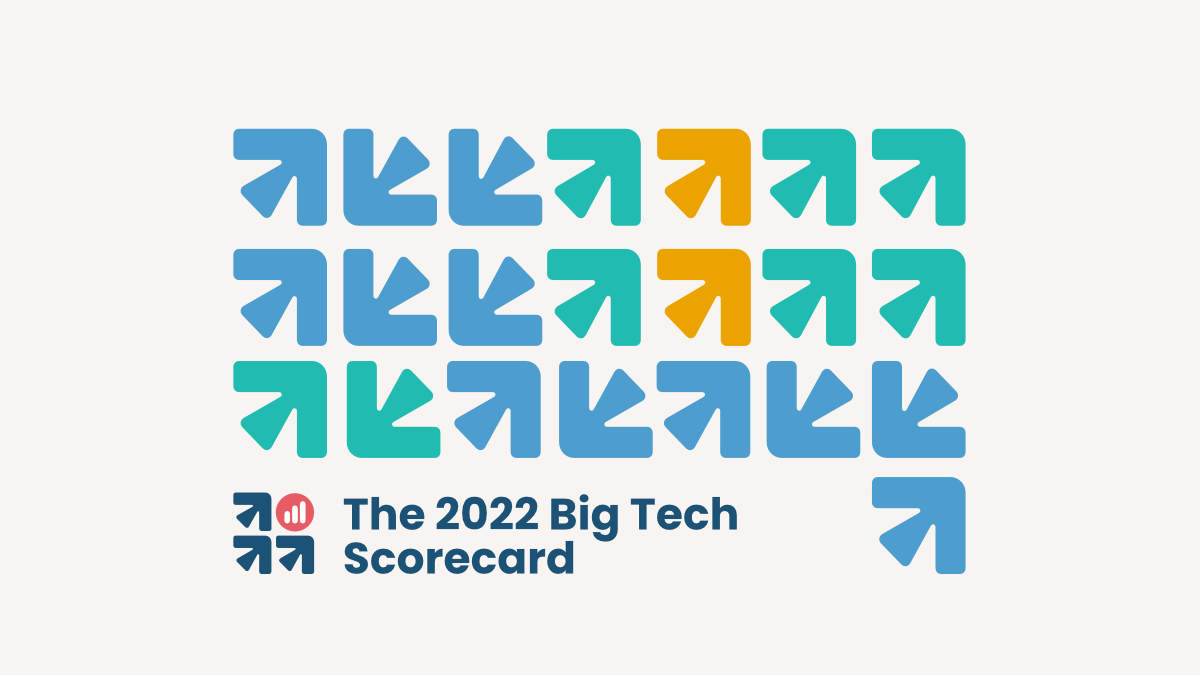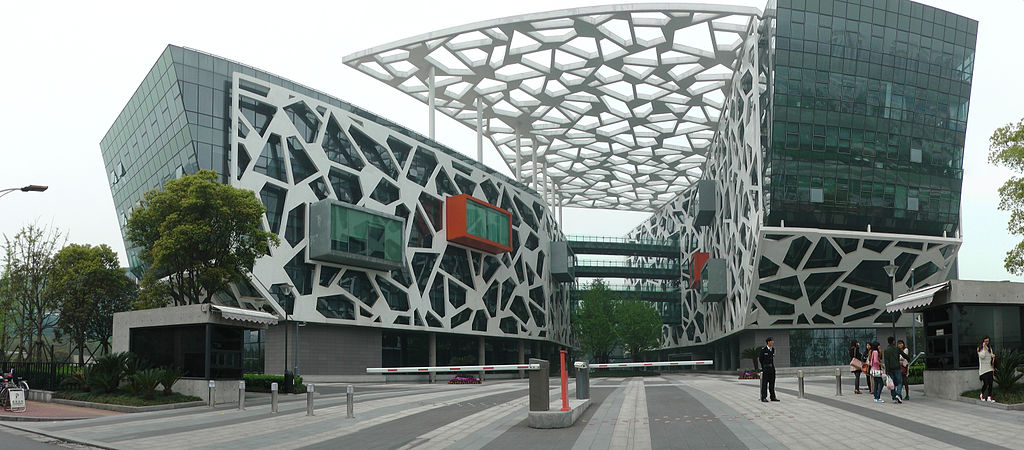
Alibaba group Headquarters
Chinese companies may want to engage with civil society. But in the era of Xi Jinping, it’s not that simple.
Back to Scorecard
In the West, when people talk about “Big Tech,” they are typically referring to companies like Apple, Google, and Meta, all headquartered in the U.S. But if you want to get a real picture of how people worldwide use digital platforms and what their experiences are like, you have to think beyond the U.S.-based companies. This is why, at RDR, we see Big Tech as a global construct. Half of the digital platforms we evaluate are based outside the U.S., in Russia, South Korea, and, of course, China.
Regardless of where a company is headquartered, we ask the same questions about its leadership, policies, and practices, as they all affect people’s rights to privacy, freedom of expression and information, and non-discrimination. This lets us produce a benchmark that does not make exceptions for companies operating in restrictive regulatory regimes.
We also work hard to engage directly with relevant company staff, no matter their location. We correspond with policy teams at every company that we evaluate throughout our research cycle, offering them opportunities to review and comment on our evaluations and providing them with channels to ask and answer questions. In recent years, nearly all of the digital platforms that we evaluate have agreed to speak with us about our standards and our assessments of their policies and practices.
But for the Chinese companies we evaluate, it’s a different story. Despite our efforts to contact them each year, it seems that the big three—Alibaba, Baidu, and Tencent—almost never get our messages. A brief emailed acknowledgment is rare enough to spark genuine excitement for our team. We know from partners and peers in the digital rights community that their own efforts to reach the Chinese tech giants have been similarly fruitless. And it has us asking: Why do Chinese companies respond with silence when civil society comes knocking?
The paradox of seeking market integration
Over the last two decades, China’s tech giants have worked hard to build strong standing in the U.S. capital market. All three Chinese companies that we rank are listed or traded on U.S. stock exchanges. They have every incentive to care about their international reputations and engagement with their stakeholders. And in some ways, they do seem to care. In recent years, all three companies have published special reports to show that they share environmental, social, and governance (ESG) goals with their Silicon Valley counterparts. Baidu even published a human rights policy in 2021, a first for a Chinese tech company. Industry experts suspect this was due to pressure from investors.
In the past, China’s tech giants have often chosen to list on stock exchanges that gave founders and insiders the flexibility to stay in control through dual-class shares. Alibaba followed this logic in 2014, opting to go public on the New York Stock Exchange (NYSE) in what became the biggest initial public offering (IPO) in history. By choosing NYSE, Alibaba spurned the Hong Kong Stock Exchange (HKEX) and its prohibition on disproportionate voting rights, which would have prevented the company’s governing cabal from retaining its inflated power.
But the tide is turning. HKEX loosened its rules on dual-class shares in the aftermath of the Alibaba IPO, immediately attracting aspiring Chinese tech giants and luring their more established peers back to the Chinese capital market. Both Alibaba and Baidu soon secured a second listing in Hong Kong, creating a new center of capital closer to their home base. But this homecoming exposes them to ever greater political pressure from the Chinese government. It also hobbles the ability of institutional and retail investors outside China to hold them accountable. Coupled with U.S. authorities’ threats to delist Chinese companies for failing to show their financial audits, these developments are taking on the contours of a divorce. As China’s market grows in power and appeal, its tech titans are likely to get locked into full obedience to the Chinese Communust Party—all while locking out shareholders who might push them to resist it.
One might imagine that Chinese companies are indifferent to the agendas of international civil society groups like RDR, but the real picture is more complicated. Silence is most likely a deliberate calculation made after prudent consideration of the costs and benefits of engagement. Interactions with foreign civil society organizations may bring significant political risks to these companies. Their uniquely domestic market orientation, China’s regulatory campaigns, and the stifling of Chinese civil society in the era of Xi Jinping are three factors that put tight limits around what companies can and can’t afford to do when it comes to public engagement.
Serving users at home reconfigures relations with the public—and the government
While China’s tech giants have invested heavily in overseas markets in recent years, the three we evaluate still profit primarily from China’s enormous domestic market. This makes their calculus different from that of a global company like Meta, whose home market in the U.S. accounts for only a small portion of its user base. Among Facebook’s 2.91 billion monthly active users, only about 180 million of them are from the U.S. India is the largest market for Facebook, with around 330 million users. In contrast, the vast majority of people using WeChat—a “super app” owned by Tencent that combines messaging, social networking, food delivery, and payment services—are located in mainland China.
For Tencent, the domestic market is almost completely unaffected by public criticism of the company that occurs outside of China. For example, when the University of Toronto’s Citizen Lab released reports showing how WeChat was surveilling users and censoring user content, it made waves internationally. But they had little effect on Tencent in China, if any.
China’s tech giants worry much more about criticism from within the country, where a bad reputation among users may lead to real revenue loss and attract scrutiny from the government. For example, a 2020 news report about the role of algorithms in perpetuating exploitative labor practices in China’s food delivery platforms triggered a public relations crisis for Meituan, China’s food delivery behemoth. The controversy appears to have been a driving force behind key provisions in China’s 2021 algorithmic recommendation regulation.
Our summer 2021 report evaluating the policies and practices of the China-based company ByteDance, owner of TikTok and its sister app, Douyin, offered another valuable opportunity for engagement with a Chinese company. After the report’s release, TikTok’s U.S. team responded to us actively, in what seemed like a genuine effort to listen, or at least stave off further public criticism. But in spite of our best efforts (which included thorough communication of our intentions in both English and Chinese), policy staffers for China-focused Douyin in Beijing did not respond. ByteDance seems to have created a hybrid model to handle public criticism: its Beijing office mainly handles issues specific to Douyin in China, while its teams in the U.S. and Singapore are responsible for public affairs matters affecting TikTok. The extent to which one informs the other remains unclear.
Since they cater to an almost exclusively Chinese user base, China’s internet platforms lack incentives to engage with Western civil society. Indeed, why should they bother to respond to concerns from outside their home market? In a heavily regulated market where the government constantly intervenes, the destinies of China’s tech companies are most often left to the mercy of the party. They simply do not have the ability to set their agendas independently.
Weathering the political winds of Beijing
Nothing can challenge the authority of the party, not even the tech giants. But the party has created special conditions allowing China’s tech companies to emerge and thrive over the past 20 years. The Great Firewall blocked their strongest business competitors outside China, and a relatively lax regulatory regime provided those companies enough space to build out their business models and expand—until recently.
The success of the tech companies is deeply tied to the political approach of the party. Yet their dependence on the party has also made Chinese tech giants vulnerable to Beijing’s control. The key to their success may also be part of their undoing.
Diminishing civil society in China
Since Xi took office in 2012, China has pushed civil society further and further into the margins. Western NGOs in particular have been chased out, as they are seen as a threat to the position of the party. To limit the influence of the West, China enacted the Law of the Administration of Activities of Overseas Nongovernmental Organizations in the Mainland of China in 2017, which advocates estimated affected over 7,000 foreign NGOs. Meanwhile, human rights lawyers and activists disappeared and social media influencers (or “self-media,” as they’re known in China) and press outlets became subject to stricter censorship. Apart from semi-official consumer rights associations, China does not have real digital rights NGOs. In the 10 years since Xi came into office, civil society has become taboo in China. Chinese businesses are reluctant to even acknowledge foreign NGOs like RDR. In this context, there is little incentive to engage at the price of offending party officials.
The crackdown
Over the past year, through a series of multi-pronged measures, including antitrust fines, data protection legislation, and new banking regulations, the party has taught tech companies who is the real boss. “Reckless” behaviors have come at a high cost. After Ant Group founder and former chairman Jack Ma criticized China’s banking system, for example, authorities suspended Ant’s IPO, which would have been the largest in history. Next up was Didi, China’s leading ride-hailing platform. Just two days after its IPO in New York, the app was removed from mobile app stores in China and banned from new user registration for ignoring data security concerns signaled by the government. And Tencent may soon receive a record high fine for violating China’s money laundering policy after its online gaming service was scrutinized by the government.
This is not a good moment for the tech companies to rebel. Their best available strategy for survival is to keep their heads down and minimize the long-term damage caused by China’s protracted crackdown on Big Tech, which Xi describes as an effort to reduce the “disorderly expansion of capital.” Tech conglomerates are dipping into their vaults to hire former government officials, hoping their insider knowledge will help them navigate this period of heightened scrutiny. Of course, anything that may displease the ruling party will be off the table, relieving the burden on public policy teams already overwhelmed by the day-to-day struggle with Beijing. This leaves little space for the risky business of engaging with Western civil society.
These circumstances do not bode well for the privacy and freedom of expression rights of people who use or are affected by these companies’ products and services. But Chinese companies have little reason to worry that violations of these rights will affect their bottom line. Whether this will shift in the future remains to be seen, particularly as China’s data protection and algorithmic regulations continue to force changes that benefit the public interest. We will continue to wait for a response, should a forward-thinking liaison at any of these companies decide to provide one. But we will not be surprised if the call never comes.
Back to Scorecard













 In recent years, nearly all of the digital platforms that RDR evaluates have agreed to speak with us about our standards and our assessments of their policies and practices. But three Chinese companies we evaluate have left us hanging. Jie Zhang explores the reasons that Alibaba, Baidu, and Tencent respond with silence when we come knocking.
In recent years, nearly all of the digital platforms that RDR evaluates have agreed to speak with us about our standards and our assessments of their policies and practices. But three Chinese companies we evaluate have left us hanging. Jie Zhang explores the reasons that Alibaba, Baidu, and Tencent respond with silence when we come knocking. For a global internet that supports and sustains human rights, we need a global online advertising ecosystem that does the same thing, Policy Director Nathalie Maréchal argues. She not only offers a prescription for fixing online advertising but also makes a case for how this could help solve some of the problems with unpaid online content.
For a global internet that supports and sustains human rights, we need a global online advertising ecosystem that does the same thing, Policy Director Nathalie Maréchal argues. She not only offers a prescription for fixing online advertising but also makes a case for how this could help solve some of the problems with unpaid online content. Jan Ryzdak, our company and investor engagement manager, explains how a combination of unfair and lax regulations at the
Jan Ryzdak, our company and investor engagement manager, explains how a combination of unfair and lax regulations at the Where to find us
Where to find us RDR media hits
RDR media hits



